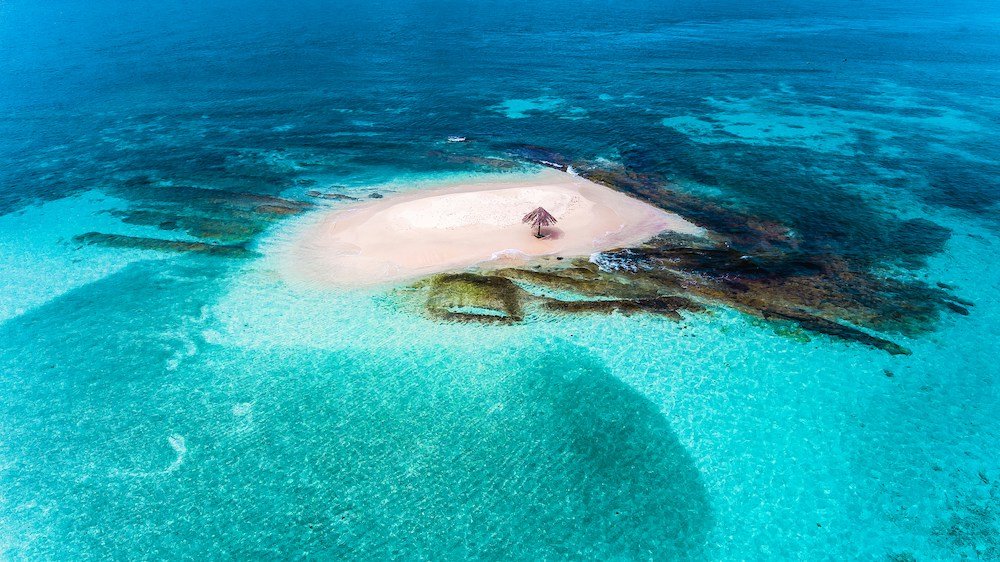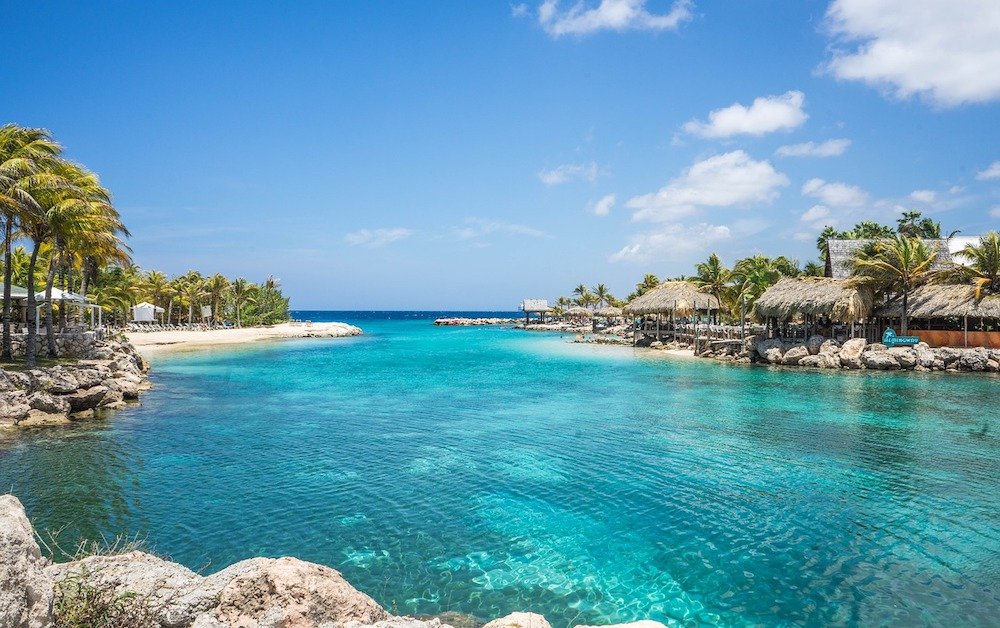
Want to know which is the cheapest Caribbean island to invest in for real estate?
The Caribbean, with its azure waters, pristine beaches, and vibrant culture, has long been a sought-after destination for investors eyeing real estate opportunities.
The region’s real estate market, known for its diversity and potential, attracts a global audience keen on securing a slice of paradise.
From luxury resorts to quaint beachfront cottages, the Caribbean offers a spectrum of investment options.
Investing in Caribbean real estate goes beyond the allure of owning a piece of tropical paradise.
The region’s strategic location, coupled with its tourism appeal, positions it as a lucrative market for real estate enthusiasts.
The Caribbean has witnessed a steady rise in tourist arrivals, contributing to a robust demand for accommodations, be it vacation rentals or long-term residences.
Moreover, the region’s economic stability and the potential for property value appreciation make it an attractive prospect for investors seeking both short-term returns and long-term growth.
As the Caribbean real estate market flourishes, this article aims to guide prospective investors towards affordable opportunities that provide an optimal balance of cost and potential returns.
Whether you’re a seasoned investor looking to diversify your portfolio or a first-time buyer dreaming of a Caribbean retreat, this guide will shed light on seven of the most cost-effective islands where your real estate aspirations can come to fruition.
Factors to Consider Before Investing
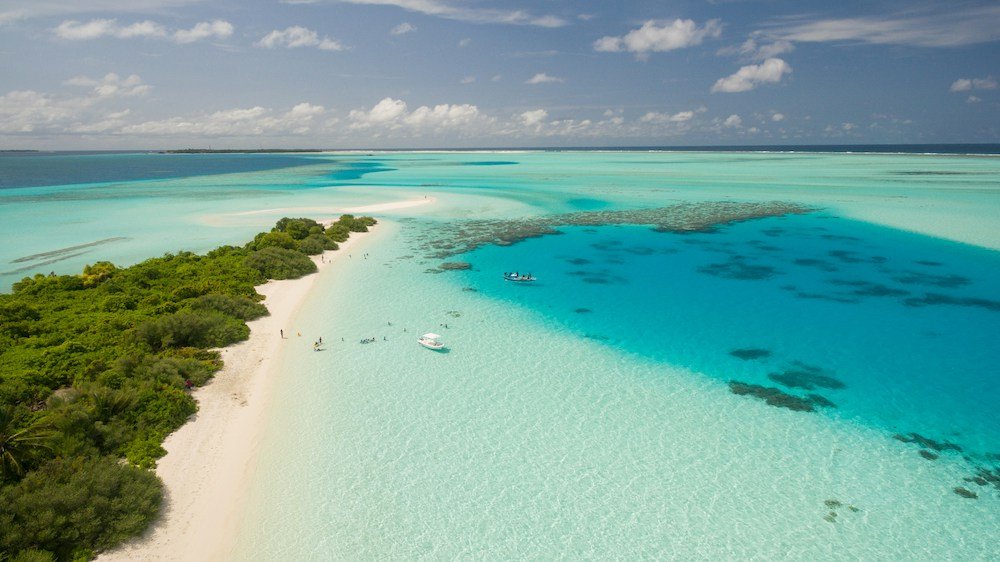
Before embarking on your real estate journey in the Caribbean, it’s essential to weigh various factors that can significantly impact the success of your investment.
Understanding the economic, legal, and infrastructural landscape will not only mitigate risks but also enhance the overall viability of your investment.
A. Economic Stability of the Region
The economic stability of a region is a fundamental consideration for any real estate investor. Stable economies provide a secure foundation for property values to appreciate over time.
Before committing to an investment, assess the economic health of the chosen Caribbean destination.
Factors such as GDP growth, employment rates, and fiscal policies should be carefully examined to gauge the resilience of the local economy.
B. Legal Regulations and Restrictions
Navigating the legal landscape is crucial when investing in foreign real estate markets.
Different Caribbean islands may have varying legal regulations and restrictions for foreign investors.
Research the legal framework governing property ownership, land tenure, and any restrictions on foreign buyers. Understanding these aspects will ensure a smooth and legally sound investment process.
C. Tourism Trends and Potential for Rental Income
Given the Caribbean’s appeal as a tourist destination, understanding current tourism trends is vital for real estate investors.
Islands experiencing consistent growth in tourist arrivals offer lucrative opportunities for rental income. Analyze the demand for vacation rentals, hotels, and other accommodations in the chosen destination.
A thriving tourism industry can translate into a steady stream of rental income, making your investment more financially rewarding.
D. Infrastructure and Development Plans
The infrastructure of an island plays a pivotal role in its real estate market.
Assess the existing infrastructure and inquire about any upcoming development plans. Islands with well-established transportation networks, utilities, and amenities are likely to attract more investors and tourists.
Additionally, being aware of government initiatives for infrastructure development can provide insights into the future growth potential of the region, influencing your investment decisions.
By carefully evaluating these factors, you can make informed decisions that align with your investment goals.
Selection Criteria for Affordable Caribbean Islands

In the quest for the most affordable Caribbean islands for real estate investment, a strategic selection process is crucial.
Consider the following criteria to pinpoint destinations that not only fit your budget but also promise long-term value and growth potential.
A. Average Property Prices
The cornerstone of affordability lies in the average property prices within a given destination.
Research and compare property prices across the Caribbean islands to identify those that align with your budget constraints.
Keep in mind that lower property prices do not necessarily indicate a compromise on quality or potential returns.
By understanding the market dynamics, you can uncover hidden gems offering excellent value for your investment.
B. Potential for Property Value Appreciation
While focusing on affordable options, it’s essential to assess the potential for property value appreciation.
Islands with strong economic fundamentals, tourism growth, and development plans are likely to see an increase in property values over time.
Look for destinations where your investment has the potential to yield not only immediate returns but also long-term capital appreciation.
C. Ease of Doing Business in the Region
The ease of doing business in a particular region directly impacts the efficiency and success of your real estate investment.
Evaluate factors such as the transparency of legal processes, property registration procedures, and the overall business environment.
Islands with investor-friendly policies and streamlined processes make it easier for you to navigate the complexities of real estate transactions.
D. Local Amenities and Attractions
Beyond the financial aspects, consider the lifestyle and amenities offered by each island.
Proximity to beaches, cultural attractions, and recreational facilities can enhance the desirability of your investment property.
Islands with a rich tapestry of local attractions not only appeal to potential renters but also contribute to the overall enjoyment and satisfaction of property ownership.
The 7 Cheapest Caribbean Islands to Invest In
1. Dominican Republic:

The Dominican Republic, located on the island of Hispaniola, has emerged as a hotspot for affordable real estate investments.
The market offers a diverse range of properties, from beachfront condos to mountain retreats, catering to various investor preferences.
With a growing economy and a steady influx of tourists, the Dominican Republic’s real estate sector presents a compelling opportunity for those seeking affordability and potential returns.
One of the primary reasons the Dominican Republic stands out is its relatively low average property prices compared to other Caribbean destinations.
Investors can find budget-friendly options without compromising on quality.
The market has witnessed stable trends in recent years, with the potential for gradual appreciation.
This affordability, coupled with a positive market trajectory, makes the Dominican Republic an attractive prospect for real estate investors.
Key Attractions and Features for Investors:
- Tourist Appeal: The Dominican Republic is a major tourist destination, attracting visitors with its pristine beaches, lush landscapes, and vibrant culture. The steady flow of tourists contributes to a robust demand for rental properties, presenting an opportunity for investors to generate consistent rental income.
- Government Incentives: The Dominican government has implemented initiatives to encourage foreign investment, including favorable tax policies for real estate investors. Understanding these incentives can significantly impact the overall return on investment.
- Diverse Geography: From the bustling city life of Santo Domingo to the tranquil beaches of Punta Cana, the Dominican Republic offers diverse geographic settings for real estate investments. Investors can choose from urban condos, beachfront villas, or countryside estates based on their preferences and investment goals.
2. Jamaica:

Jamaica, renowned for its reggae music, vibrant culture, and lush landscapes, is not only a tourist paradise but also an enticing destination for real estate investors.
The Jamaican real estate market presents a diverse array of opportunities, ranging from coastal properties to properties nestled in the scenic mountains.
Understanding the dynamics of this market is essential for investors seeking affordability and potential growth.
Jamaica offers a spectrum of real estate options at relatively affordable prices.
The average property prices, when compared to some of its Caribbean counterparts, make it an attractive destination for budget-conscious investors.
Trends indicate a stable market with opportunities for investors to capitalize on the island’s growing appeal.
The potential for property appreciation and the affordability factor combine to make Jamaica a compelling choice for real estate investment.
Key Attractions and Features for Investors:
- Tourist Allure: Jamaica’s popularity as a tourist destination contributes significantly to the appeal of its real estate market. From the iconic Seven Mile Beach in Negril to the historic sites in Kingston, the island attracts a steady stream of visitors. Investors can leverage this demand by investing in properties suitable for vacation rentals or short-term stays.
- Cultural Richness: The rich cultural heritage of Jamaica is a unique selling point for real estate investors. Properties infused with local charm and proximity to cultural attractions can enhance their market desirability. Investors keen on a blend of cultural immersion and real estate investment may find Jamaica particularly appealing.
- Government Support: Jamaica has implemented measures to facilitate foreign investment, including streamlined processes for property acquisition. Investors should explore the various government incentives and regulations that can positively impact their real estate endeavors on the island.
3. Belize:
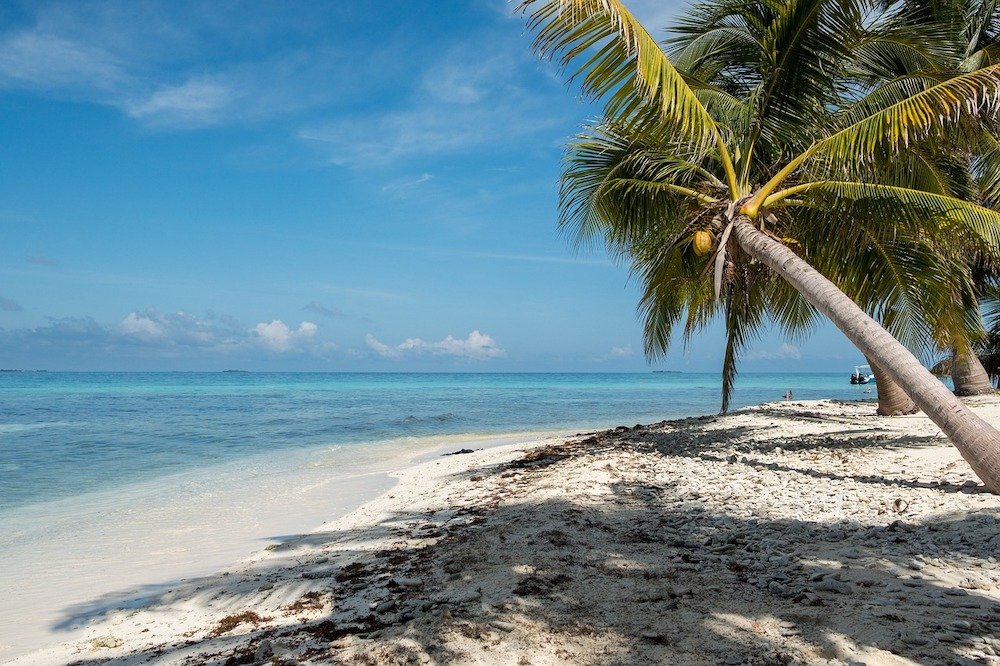
Nestled along the Caribbean Sea in Central America, Belize is a hidden gem for real estate investors seeking affordability and natural beauty.
The Belizean real estate market offers a range of options, from coastal properties to inland retreats, providing investors with diverse opportunities in a relatively undiscovered market.
Belize stands out as a cost-effective destination for real estate investment, with average property prices that appeal to budget-conscious investors.
The market trends indicate a balance between affordability and growth potential, making it an attractive choice for those looking to capitalize on the region’s untapped real estate opportunities.
Investors exploring Belize will find a welcoming market with the potential for long-term value appreciation.
Key Attractions and Features for Investors:
- Natural Wonders: Belize boasts a wealth of natural wonders, including the famous Blue Hole, ancient Mayan ruins, and pristine rainforests. Investors interested in eco-friendly properties or those with proximity to natural attractions can tap into the growing demand for sustainable and adventure tourism.
- English-Speaking Environment: The official language of Belize is English, providing a language advantage for investors. This feature simplifies communication and transactions, making the investment process more accessible for international buyers.
- Retirement Haven: Belize has gained popularity as a retirement destination, attracting retirees seeking a tranquil lifestyle amidst breathtaking scenery. Investors can explore opportunities in the retirement real estate sector, catering to a demographic with specific preferences and requirements.
4. Grenada:
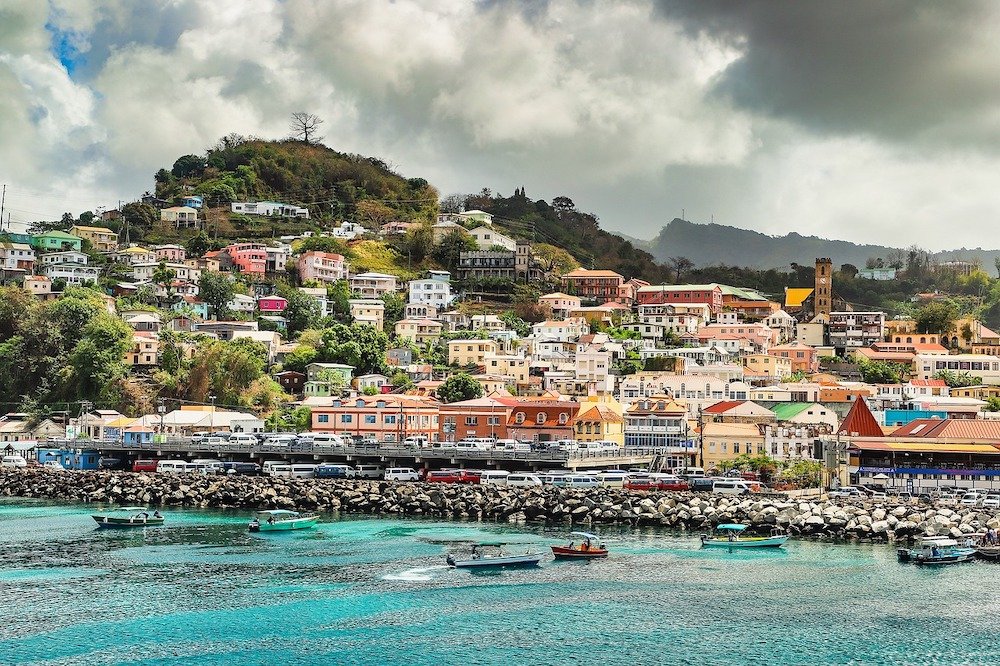
Nestled in the southeastern Caribbean, Grenada, often referred to as the “Spice Isle,” is a captivating destination for real estate investment.
With its lush landscapes, crystal-clear waters, and a welcoming atmosphere, Grenada’s real estate market offers a unique blend of affordability and natural beauty, making it an enticing prospect for investors.
Grenada presents real estate investors with an opportunity to explore affordable options in a market characterized by stability.
Average property prices, when compared to some of its Caribbean counterparts, make it an attractive destination for those seeking budget-friendly investments.
Trends indicate a market with the potential for steady appreciation, providing investors with a favorable environment for both short-term and long-term gains.
Key Attractions and Features for Investors:
- Citizenship by Investment: Grenada’s Citizenship by Investment program is a noteworthy feature for investors. By participating in this program, investors can secure citizenship by making a qualifying real estate investment, opening doors to various benefits, including visa-free travel to numerous countries.
- Untouched Beauty: Grenada’s unspoiled landscapes and pristine beaches contribute to its appeal as a tourist destination. Real estate investors can explore opportunities in eco-friendly and beachfront properties, catering to the demand for sustainable and scenic accommodations.
- Tourism Growth: The Grenadian government’s commitment to sustainable tourism has led to steady growth in the sector. Investors can leverage this trend by investing in properties suitable for vacation rentals, capitalizing on the increasing number of tourists drawn to the island.
5. Trinidad and Tobago:

Trinidad and Tobago, a dual-island nation located at the southernmost point of the Caribbean archipelago, offers a distinctive real estate landscape.
With a vibrant culture, diverse economy, and strategic geographical position, the real estate market in Trinidad and Tobago presents investors with an array of opportunities for affordable and potentially rewarding investments.
Trinidad and Tobago’s real estate market provides investors with competitive average property prices, making it an attractive destination for those seeking affordability without compromising on quality.
The market trends indicate a stable environment with potential for growth, offering investors the prospect of capital appreciation over time.
Understanding these trends is crucial for making informed investment decisions in this dynamic market.
Key Attractions and Features for Investors:
- Economic Diversity: Trinidad and Tobago boast a diverse economy, driven by industries such as energy, manufacturing, and services. Investors can explore opportunities aligned with the country’s economic strengths, tapping into the demand for residential and commercial properties driven by a stable and diversified economic base.
- Cultural Richness: The cultural diversity of Trinidad and Tobago is a unique selling point for real estate investors. Properties reflecting the rich tapestry of local culture and proximity to cultural events and festivals can enhance their market desirability, especially for those interested in a blend of cultural immersion and real estate investment.
- Strategic Location: The country’s strategic location in the southern Caribbean enhances its appeal for investors. Proximity to South America and established trade routes positions Trinidad and Tobago as a hub for business and commerce, providing opportunities for real estate investments catering to a growing international business community.
6. Puerto Rico:
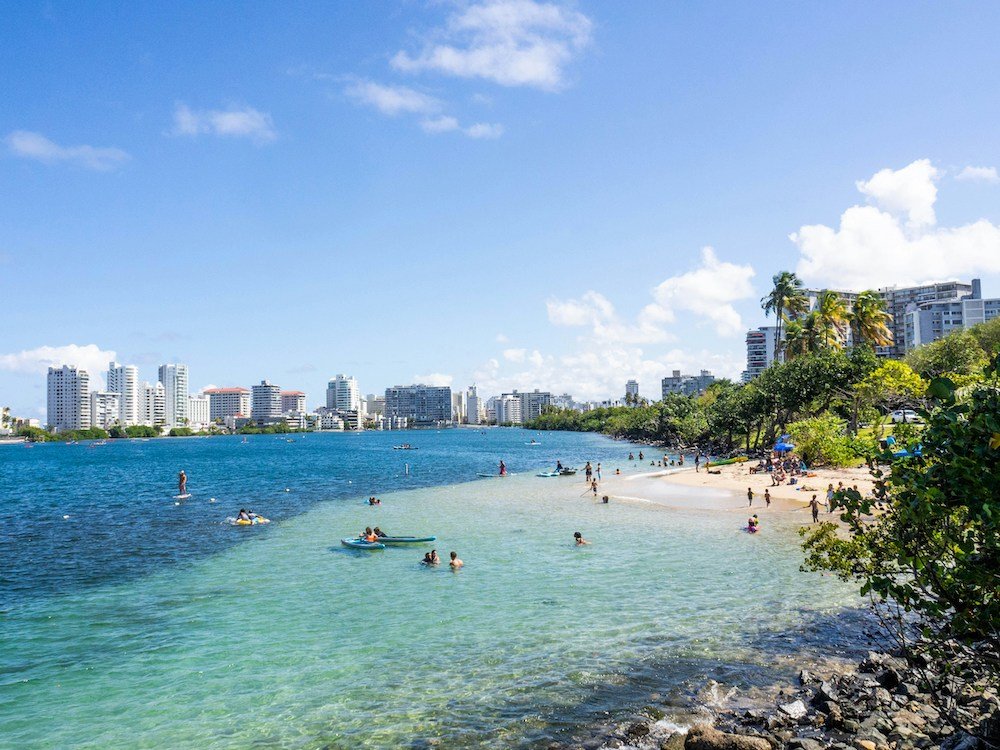
Nestled in the northeastern Caribbean, Puerto Rico, with its rich history, vibrant culture, and tropical allure, beckons real estate investors with a diverse and dynamic market.
The real estate landscape in Puerto Rico offers a mix of urban and coastal opportunities, providing investors with a range of options in a region known for its unique blend of Spanish and Caribbean influences.
Puerto Rico’s real estate market is characterized by competitive average property prices, making it an appealing destination for investors seeking both affordability and potential returns.
Trends in the market suggest a balance between stability and growth, providing investors with opportunities for capital appreciation.
Understanding the nuances of Puerto Rico’s real estate trends is crucial for those looking to capitalize on the island’s distinctive charm and investment potential.
Key Attractions and Features for Investors:
- Tax Incentives: Puerto Rico’s tax incentives for investors, particularly through Acts 20 and 22, have contributed to its attractiveness. Investors can benefit from favorable tax structures, making it a strategic destination for those looking to optimize their returns.
- Cultural Heritage: The rich cultural heritage of Puerto Rico is a significant draw for real estate investors. Properties reflecting the island’s history and cultural significance can be positioned as unique opportunities, catering to those who appreciate a blend of history and modern living.
- Recovery and Resilience: In the aftermath of natural disasters, Puerto Rico has demonstrated resilience in rebuilding its infrastructure. Investors can explore opportunities in the revitalization of urban areas and contribute to the island’s recovery while potentially benefiting from the growth of these revitalized regions.
7. Honduras (Roatán):

Nestled in the western Caribbean, Roatán, a picturesque island in Honduras, beckons real estate investors with its turquoise waters, vibrant coral reefs, and a relaxed tropical ambiance.
The real estate market on Roatán presents a unique combination of affordability and natural beauty, making it an alluring destination for those seeking a tranquil retreat or a strategic investment opportunity.
Roatán stands out as one of the more budget-friendly destinations for real estate investment.
Average property prices on the island are competitive, providing investors with opportunities for cost-effective acquisitions.
Trends in the market suggest a balance between affordability and the potential for appreciation, offering investors a promising environment for both short-term gains and long-term value.
Key Attractions and Features for Investors:
- Scenic Beauty: Roatán’s natural beauty, including pristine beaches and lush landscapes, is a significant attraction for real estate investors. Properties with ocean views, beach access, or proximity to natural wonders can appeal to individuals seeking a tropical paradise for vacation homes or rental properties.
- Diving and Tourism: Roatán is renowned as a diving and snorkeling paradise. Investors can explore opportunities in properties catering to the tourism industry, capitalizing on the island’s popularity among water sports enthusiasts and nature lovers.
- Infrastructure Development: With ongoing infrastructure development, including improved roads and utilities, Roatán is positioning itself as a more accessible destination. Investors can benefit from the potential appreciation of properties in areas undergoing development, contributing to the island’s overall growth.
Potential Risks and Challenges
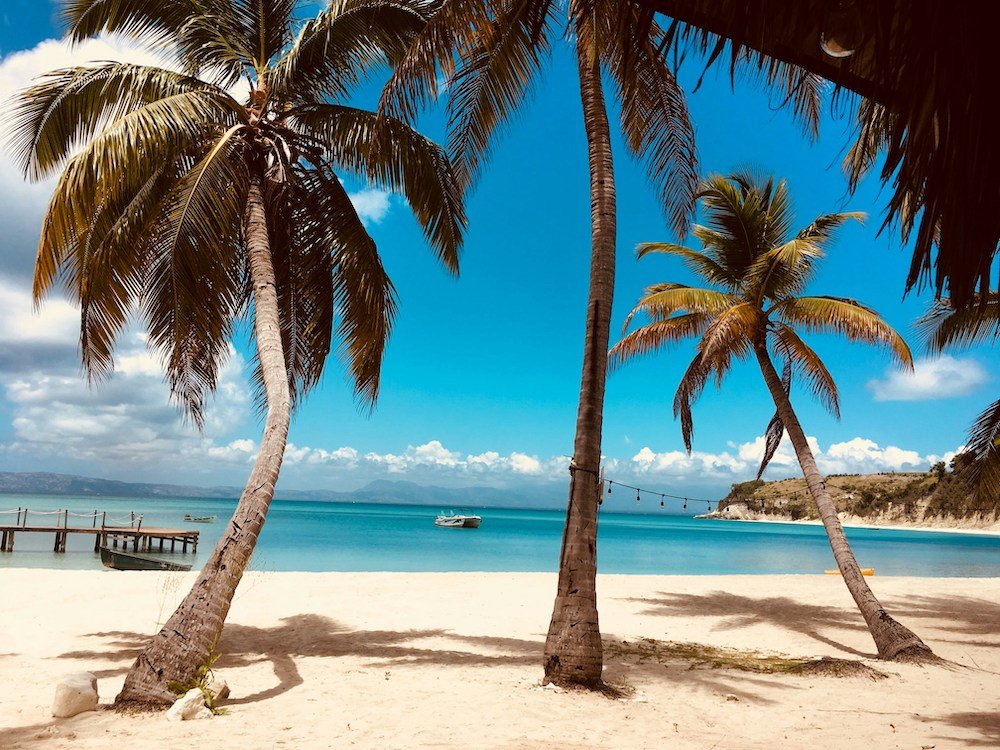
While the Caribbean offers enticing investment opportunities, it’s crucial for investors to be aware of potential risks and challenges that can impact their real estate ventures.
Understanding these factors will enable investors to make informed decisions and implement strategies to mitigate risks.
Economic and Political Instability:
Economic Considerations:
Caribbean nations may face economic challenges, influenced by factors such as global economic downturns, changes in trade policies, and dependence on specific industries.
Economic instability can affect property values, rental income, and the overall viability of real estate investments.
Political Considerations:
Political stability is essential for a conducive investment environment.
However, some Caribbean nations may experience political uncertainties, which can impact investor confidence.
Investors should stay informed about the political landscape and potential policy changes that may affect real estate ownership and operations.
Environmental Factors and Natural Disasters:
Climate Risks:
Caribbean islands are susceptible to hurricanes, tropical storms, and other climate-related events.
Investors must assess the vulnerability of properties to natural disasters, consider insurance options, and factor in potential downtime or damages in their investment calculations.
Environmental Sustainability:
Rising sea levels and environmental degradation can pose long-term risks to coastal properties.
Investors interested in beachfront or low-lying properties should consider the potential impact of climate change on their investments and explore sustainable development practices.
Currency Fluctuations:
Caribbean nations often use their local currencies, and exchange rates can be subject to fluctuations.
Currency devaluation or appreciation can affect the value of real estate investments, especially for foreign investors.
Implementing risk management strategies, such as using financial instruments or working with local financial experts, can help mitigate currency-related risks.
Navigating these potential risks requires thorough research, due diligence, and a proactive approach to risk management.
Investors should also consider consulting with local experts, legal advisors, and real estate professionals to gain insights into specific risks associated with their chosen Caribbean investment destination.
Tips for Successful Real Estate Investment in the Caribbean
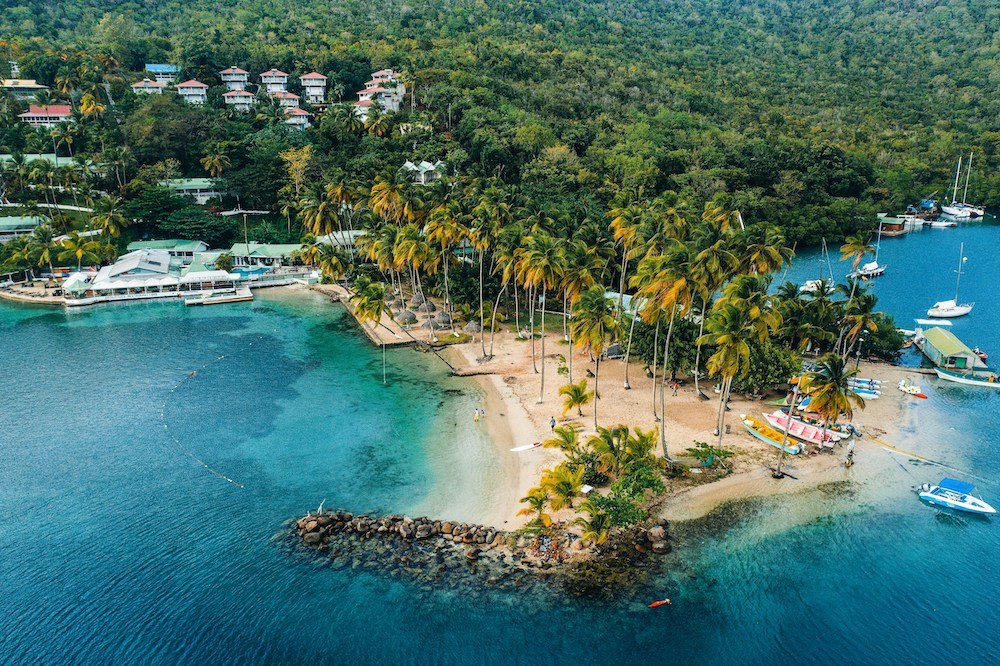
Investing in Caribbean real estate can be a rewarding venture, but success requires careful planning, knowledge, and strategic decision-making.
Here are essential tips to guide investors toward a successful real estate journey in the Caribbean:
Work with Local Real Estate Professionals:
Why it matters:
Local real estate professionals possess invaluable knowledge of the market, legal processes, and the intricacies of the region.
Collaborating with local experts enhances your understanding of the local dynamics, helping you make informed investment decisions.
Recommendations:
- Hire a Local Realtor: Engage a reputable local realtor who understands the nuances of the specific market you are interested in. They can provide insights into property values, neighborhood trends, and potential challenges.
- Legal Advisors: Work with local legal advisors who specialize in real estate transactions. They can guide you through the legal processes, ensure compliance with regulations, and provide assistance with documentation.
- Network with Industry Professionals: Attend local real estate events, conferences, and network with professionals in the industry. Building relationships with local experts, developers, and investors can offer valuable insights and potential collaboration opportunities.
Understand the Legal Process and Regulations:
Why it matters:
Navigating the legal landscape is crucial for a smooth and secure real estate investment.
Each Caribbean island may have unique legal requirements and regulations governing property ownership and transactions.
Recommendations:
- Legal Due Diligence: Conduct thorough legal due diligence before making any investment. Understand property titles, zoning regulations, and any restrictions on foreign ownership.
- Local Regulations: Familiarize yourself with local real estate regulations, permitting processes, and tax laws. Compliance with these regulations is essential for a successful and legally sound investment.
- Consult with Legal Experts: Seek advice from local legal experts who specialize in real estate law. They can provide tailored guidance based on the specific legal landscape of the chosen Caribbean destination.
Diversify Your Investment Portfolio:
Why it matters:
Diversification is a key principle of successful investing. By spreading investments across different properties or markets, investors can manage risk and enhance the overall resilience of their investment portfolio.
Recommendations:
- Explore Multiple Islands: Consider diversifying your real estate investments across multiple Caribbean islands. Each island offers unique opportunities and risks, and a diversified portfolio can help balance these factors.
- Mix of Property Types: Explore a mix of property types, including residential, commercial, and vacation rentals. Diversifying across different property categories can provide stability and income streams from various sources.
- Risk Mitigation: Evaluate your risk tolerance and diversify strategically to mitigate potential challenges such as economic fluctuations, natural disasters, or changes in local regulations.
By following these tips, investors can position themselves for success in the Caribbean real estate market.
The combination of local expertise, legal understanding, and strategic diversification will contribute to a well-rounded and resilient investment approach.
Conclusion
As we conclude our exploration of the cheapest Caribbean islands for real estate investment, let’s recap the unique characteristics and opportunities offered by each destination:
- Dominican Republic: A diverse market with affordable options, government incentives, and a thriving tourism industry.
- Jamaica: Competitive average property prices, a rich cultural heritage, and a growing tourism sector.
- Belize: A hidden gem with affordable real estate, natural wonders, and a focus on sustainable tourism.
- Grenada: A “Spice Isle” offering competitive property prices, a Citizenship by Investment program, and a robust tourism industry.
- Trinidad and Tobago: Economic diversity, cultural richness, and a strategic location for international business.
- Puerto Rico: A blend of history, cultural incentives, and tax advantages, with a mix of urban and coastal opportunities.
- Honduras (Roatán): A picturesque island with affordable properties, natural beauty, and a focus on tourism.
For potential investors considering Caribbean real estate, the diverse landscapes, cultural richness, and economic potential of these islands provide a compelling backdrop for investment opportunities.
The affordability of properties, coupled with the unique features of each destination, presents a spectrum of choices catering to various investment goals.
As you embark on your journey into Caribbean real estate, keep in mind the importance of thorough research, local expertise, and a well-rounded approach to risk management.
Collaborate with local professionals, understand the legal intricacies, and consider diversifying your portfolio to maximize the potential for success.
The Caribbean, with its sunny shores and promising investment landscape, invites you to explore the possibilities of real estate ownership.
Whether you’re drawn to the tranquil beaches of Roatán, the vibrant culture of Jamaica, or the economic diversity of Trinidad and Tobago, each island offers a unique canvas for your real estate aspirations.
In your pursuit of affordable and rewarding investments, remember that success lies in a combination of local knowledge, strategic planning, and a commitment to understanding the nuances of each market.
To ensure peace of mind while traveling or living abroad, we recommend getting health insurance. SafetyWing’s Essential plan covers travel and medical emergencies with options for adventure sports and electronics theft. Their Complete plan offers comprehensive health coverage with routine healthcare, mental health support, and maternity, anywhere in the world, including in your home country, on top of all Essential benefits.

FAQ’s About the Cheapest Caribbean Islands
What is the least expensive Caribbean island to visit?
Determining the least expensive Caribbean island to visit can vary based on individual preferences and travel circumstances.
However, destinations like the Dominican Republic, Jamaica, and Cuba are often considered more budget-friendly due to a range of affordable accommodations, dining options, and diverse attractions.
What island is the cheapest to visit?
Among the Caribbean islands, the Dominican Republic is often regarded as one of the cheapest to visit.
With a variety of budget-friendly accommodations, vibrant local markets, and a plethora of stunning beaches, the Dominican Republic provides an attractive option for travelers seeking affordability without compromising on the tropical experience.
Where is the cheapest and safest place to live in the Caribbean?
Determining the cheapest and safest place to live in the Caribbean involves considering various factors.
Grenada is often mentioned for its affordability and safety, offering a peaceful lifestyle amidst stunning natural landscapes.
However, individual preferences, lifestyle, and priorities play a crucial role in identifying the ideal location.
Which Caribbean island is the cheapest to buy property?
Identifying the cheapest Caribbean island to buy property depends on market conditions, preferences, and investment goals.
Countries like Belize, Honduras (Roatán), and parts of the Dominican Republic are often considered affordable for real estate investments.
Thorough research and consultation with local experts are essential for making well-informed decisions.
What is the safest and least expensive Caribbean island?
Grenada is often cited as one of the safest and relatively affordable Caribbean islands.
With its low crime rates and diverse real estate options, Grenada provides a combination of safety and affordability.
However, individual perceptions of safety may vary, and thorough research is advised for personalized decision-making.
Which is the safest Caribbean island to live?
Determining the safest Caribbean island to live depends on various factors, including crime rates, infrastructure, and local governance.
Islands like Barbados, Cayman Islands, and the British Virgin Islands are frequently mentioned for their reputation of safety and security.
It’s crucial to consider personal preferences and lifestyle when choosing the ideal place to reside.
